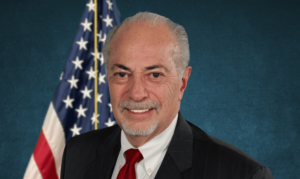I recently had another set of parents explain an upsetting account of their child’s turbulent and confused trek through the Board of Education’s school discipline process. Clearly, if you have children in the school system, you never want your child, or you as a parent, to be in a similar situation.
These sorts of situations are what most parents never think about, but should absolutely be prepared for should your student make a mistake in judgement and end up in the quasi-judicial process that takes place within the confines of the Board of Education, possibly ruining your student’s academic future.
I have reached the point where I am going to beg here, publicly, for our parents to pay close attention and to have a serious conversation with their students. It is heartbreaking for me to learn of these occurrences from parents after the fact.
Please stop thinking, “My child would never end up in that situation.”
Children can have a lapse of judgment and are capable of doing some stupid things, sometimes of their own choosing and sometimes prompted by another student. Remember, they are children.
I recall the first instance of this being conveyed to me back when I was mayor in Peachtree City. A young man was called into the high school principal’s (no longer in the school system) office and was asked questions about an incident that occurred on school grounds. The student felt uncomfortable with the line of questioning, thinking he was being coerced into writing a confession and misrepresent details, so he asked to be able to call his parents.
The principal refused to give the student access to his parents and held the student in his office for hours pressuring him to write a confession and vowed not to release him until one was written and signed. The student, both vulnerable and naive, eventually crumbled under the circumstances and fell into a discipline process that conceivably altered what appeared to be a clear academic path.
Unfortunately, the parents were also vulnerable and naive, not fully comprehending the situation, not understanding the quasi-judicial discipline process and felt devastated at the end. The parents made what they thought were reasonable decisions in a system they really did not understand. It did not go well.
Both Eugene Miller of the local NAACP and I voiced our strong displeasure of how that situation was handled at the time.
Full disclosure: I am offering you my personal opinion and each parent and student need to act based upon their own personal research. My hope is to stimulate your minds towards giving serious thought to such matters and having a discussion with your student before you end up in a process that could alter your child’s future. Likewise, I honestly hope that the BOE will take a serious look at their process.
First, school resource officers are official law enforcement officers whether they are in a school building or not. It is my opinion that if a resource officer is part of a disciplinary action involving a student that the officer’s primary responsibility is being a law enforcement officer, not an agent of the school system. It gets very confusing, otherwise.
Toggling between school discipline policies and enforcing local ordinances and state law is a difficult task and it is one that many students and parents do not fully understand.
Because the BOE is a governmental entity, each students’ constitutional rights are protected inside the school buildings. Although the courts have allowed for a few restrictions on the basis of safety, schools should be places where civil rights are not only taught, but also exercised.
The U.S. Supreme Court ruled (Tinker, 1969) that students are “persons” under the Constitution, possessing fundamental rights and that school officials do not have absolute authority of students.
Under “reasonable suspicion” your student can be searched. The definition of what constitutes reasonable is murky. School officials generally have a lower threshold of suspicion.
A law enforcement officer needs probable cause for a search. However, if a student voluntarily consents to being searched, no reasonable suspicion or probable cause is necessary.
Because we teach our children to obey authority without question, there could be times when a student willingly relinquishes his rights under the pressure of authority and that could lead to greater problems.
Locker searches are generally dependent upon what is in the school policy manual that particular year.
Can evidence seized by a school official be turned over to the police to be used as admissible evidence in court? That generally depends upon the judge’s discretion in the specific case.
I am deeply concerned about due process in the schools. The Fourteenth Amendment states that we cannot deprive anyone of their liberty without due process of law. School rules must reflect the fundamental rights of the students.
Major disciplinary infractions receive a hearing. The process is listed in the code of conduct and discipline that most parents and students do not read.
I do not agree with students being held in an administrative office under significant pressure to write “confessions” under the guise that they will not be released until a confession is rendered, not being told that they can refuse to answer the questions, not being told they can contact a parent or a family’s legal representative, sometimes being told they cannot contact anyone.
Additionally, the relationship of the principal and student can be misleading as the administrator can use his/her authority to gather information potentially as a harmless inquiry and then the same administrator can use the information collected as the “prosecutor” before a school disciplinary tribunal against the student.
I believe, at times, that students considered at-fault and student witnesses do not understand the gravity of their responses to questions, having no idea of the long-term repercussions those replies could have in the adult world.
Our state law mandates, “Progressive discipline processes, shall be designed to create the expectation that the degree of discipline will be in proportion to the severity of the behavior leading to the discipline, that the previous discipline history of the student being disciplined and other relevant factors will be taken into account, and that all due process procedures required by federal and state law will be followed” (O.C.G.A. § 20-2-735).
Each incident of inappropriate student behavior is unique in terms of situational variables and school administrators must give consideration of a number of factors specific to the student involved in the misbehavior before imposing disciplinary action.
Obviously, inappropriate actions by a student should be followed by consequences. However, I am concerned with how those consequences are metered out student-by-student and school-by-school. Is the system fair across the board?
I have doubts that the local disciplinary tribunal process can correct a situation where state mandated progressive discipline has not been appropriately applied. Likewise, school officials have mastered the quasi-judicial discipline process while most parents have no idea how the process works or the parameters of sentencing, not to mention having no sense of the historical context.
I simply cannot understand why the BOE does not enlist an independent child/parent advocate who is intimately familiar with the school system’s discipline process to counsel the family on how the process works and thoroughly discuss the possible options. This advocate could also monitor disciplinary sentencing across the system to insure equal treatment of all students.
Excluding infractions that are criminal in nature which are handled in the courts and habitual offenders, I believe that our system should make every effort to give a student an opportunity to learn from making a stupid mistake and not enact punishment that will dim the child’s academic future.
Steve Brown, Commissioner
Fayette County Board of Commissioners
Peachtree City, Ga.











Leave a Comment
You must be logged in to post a comment.